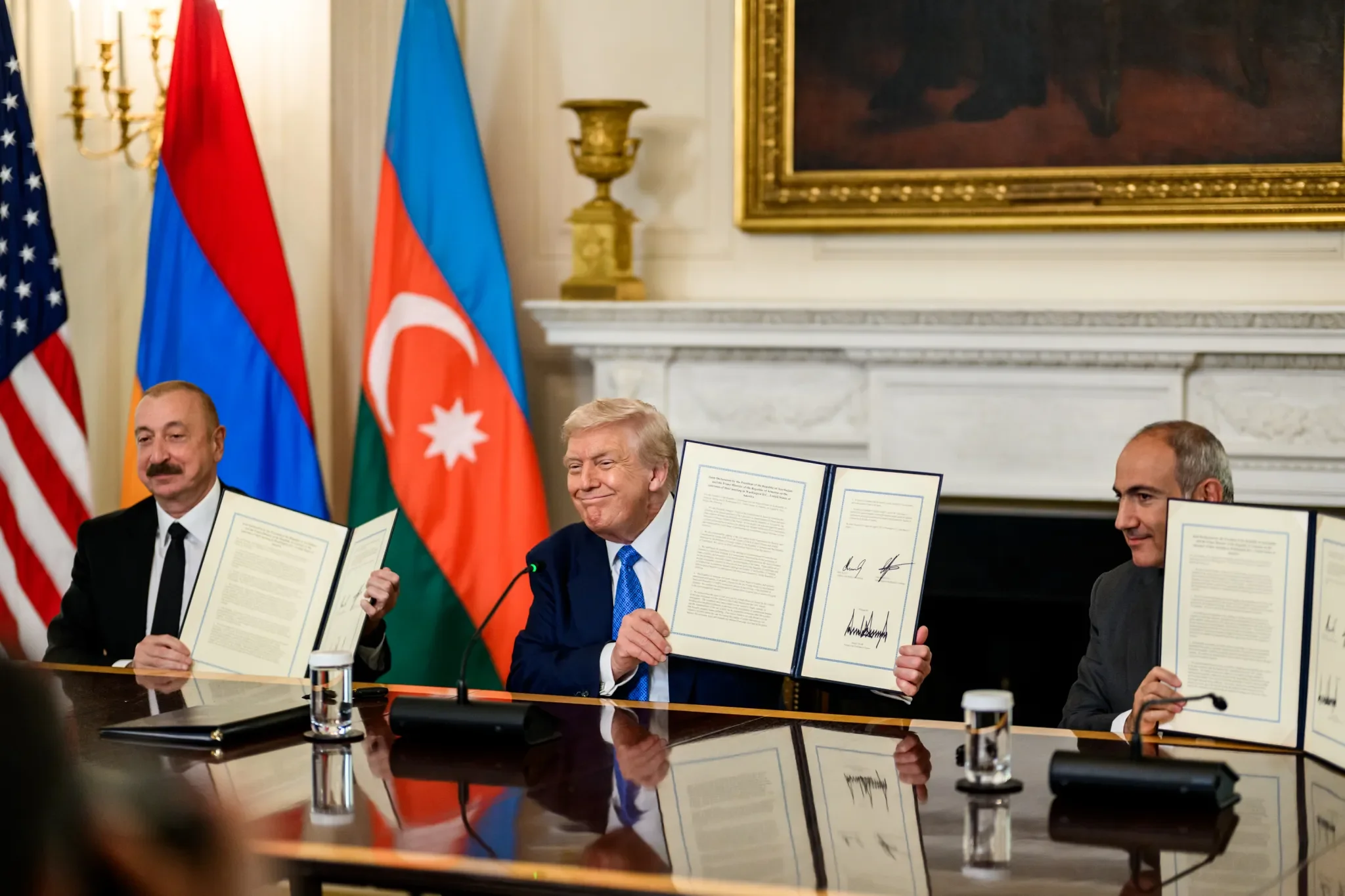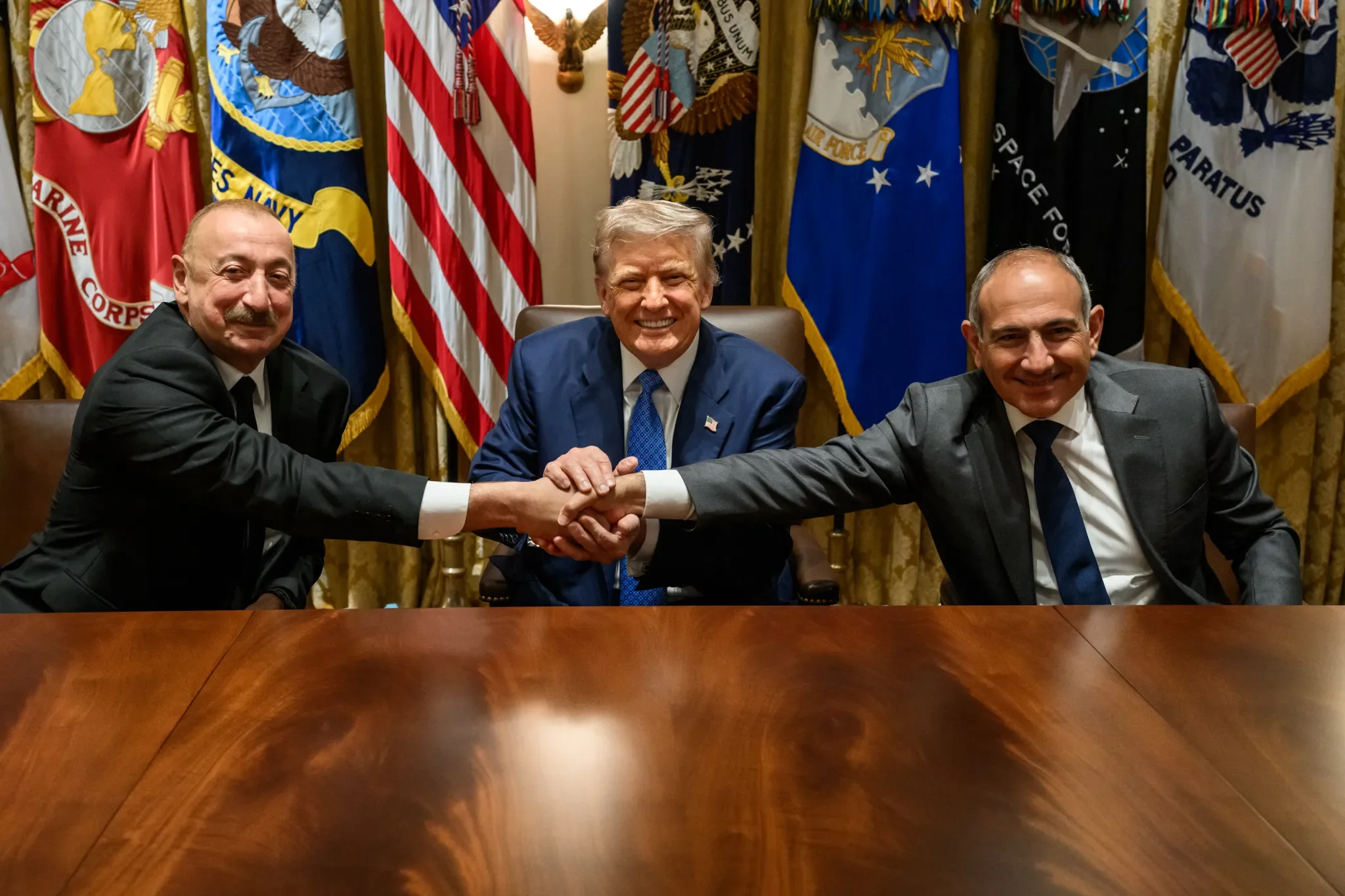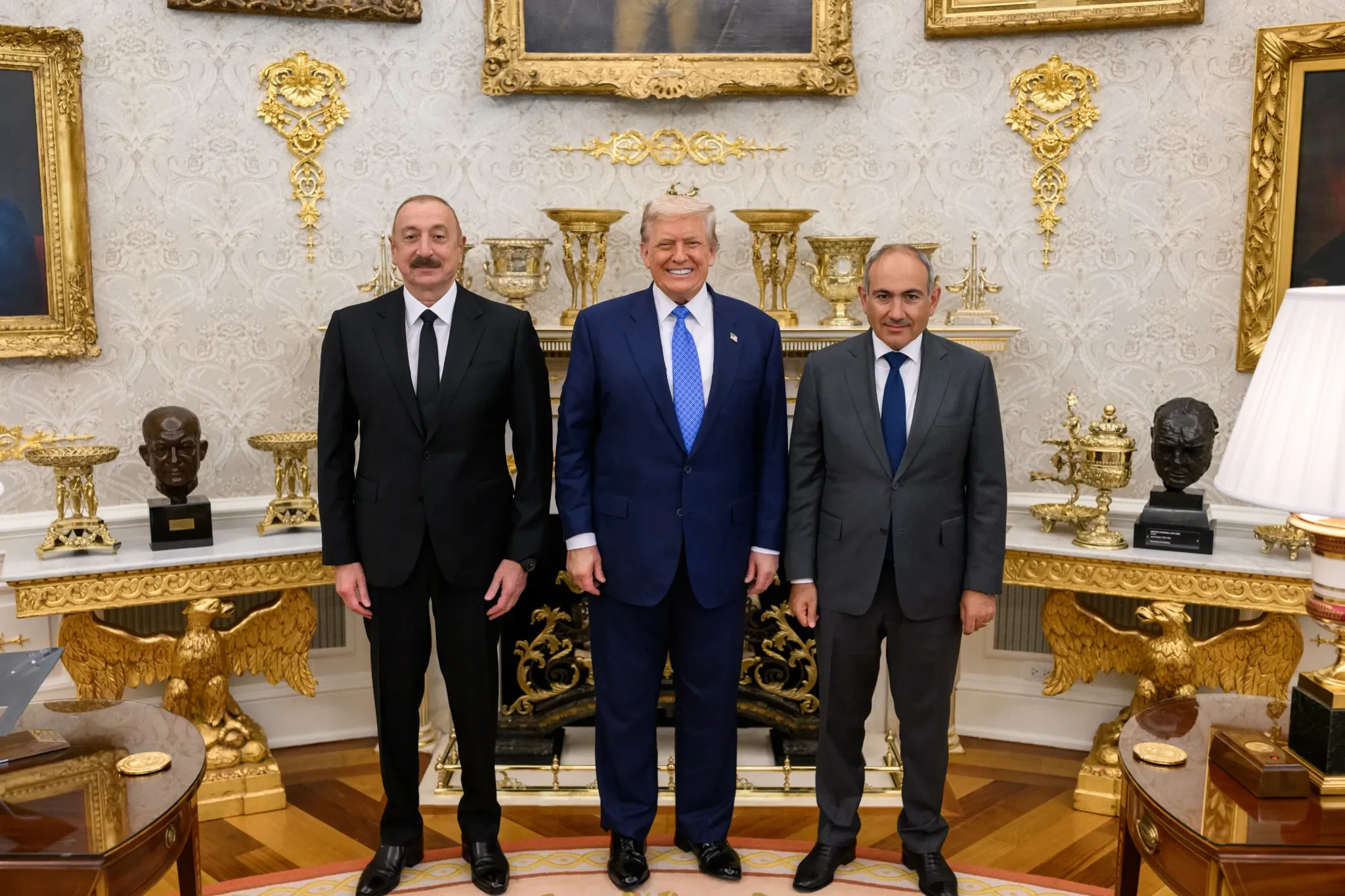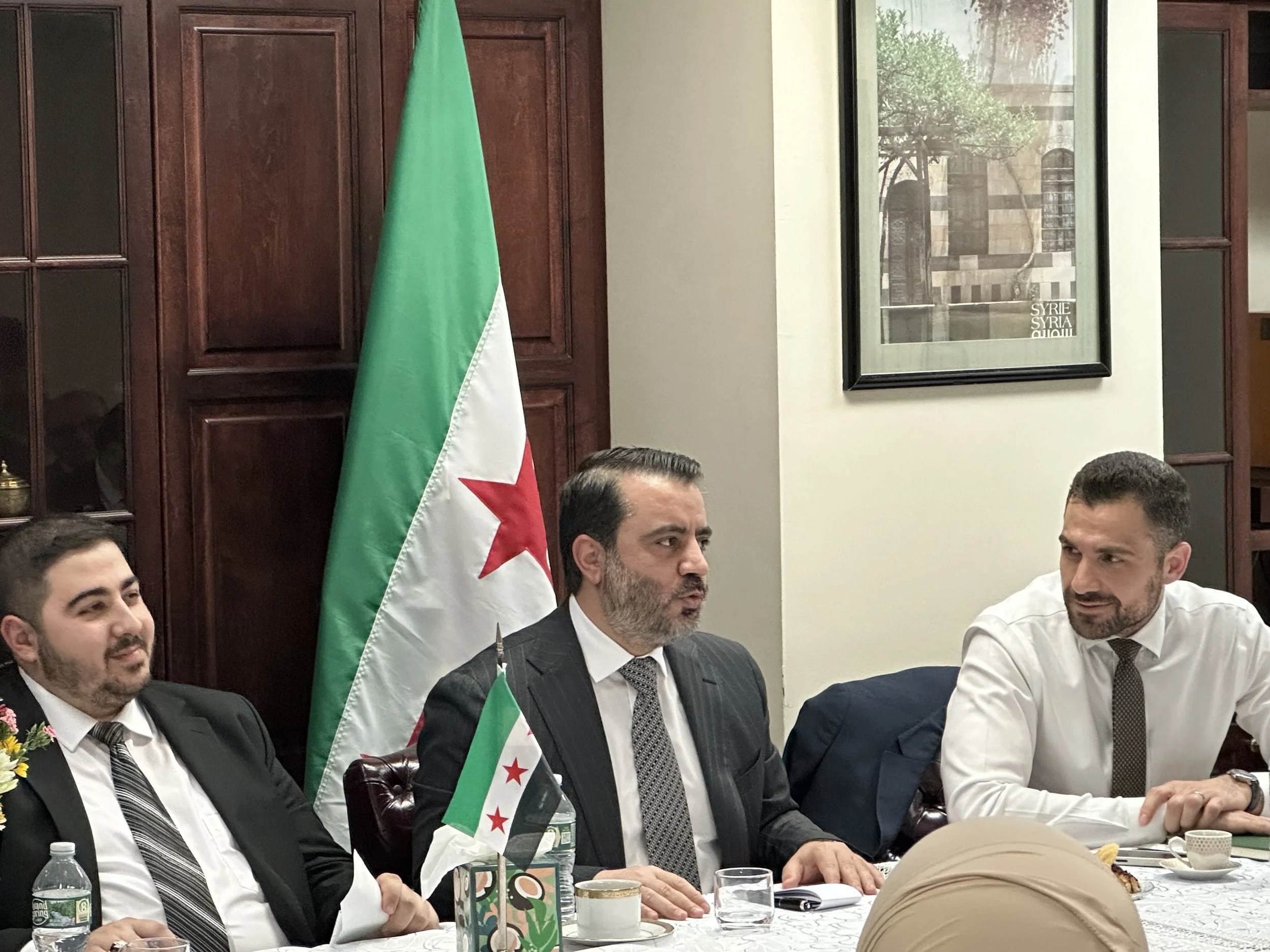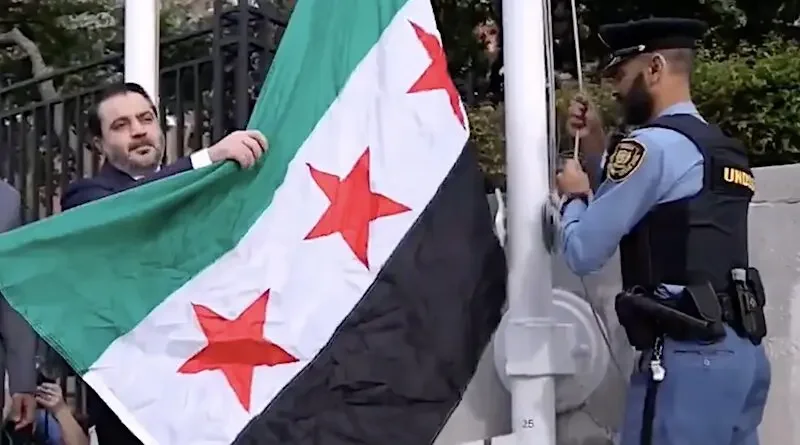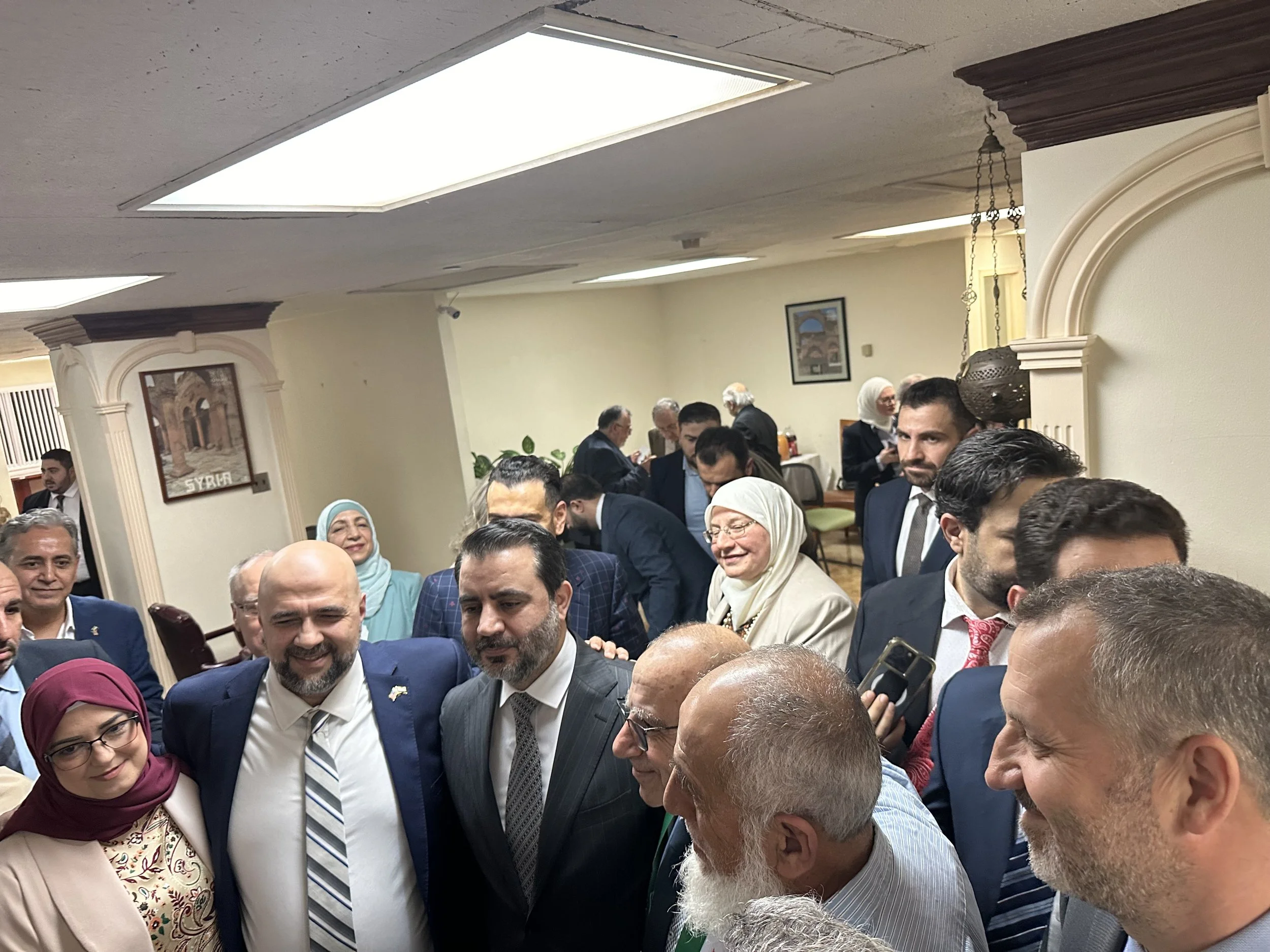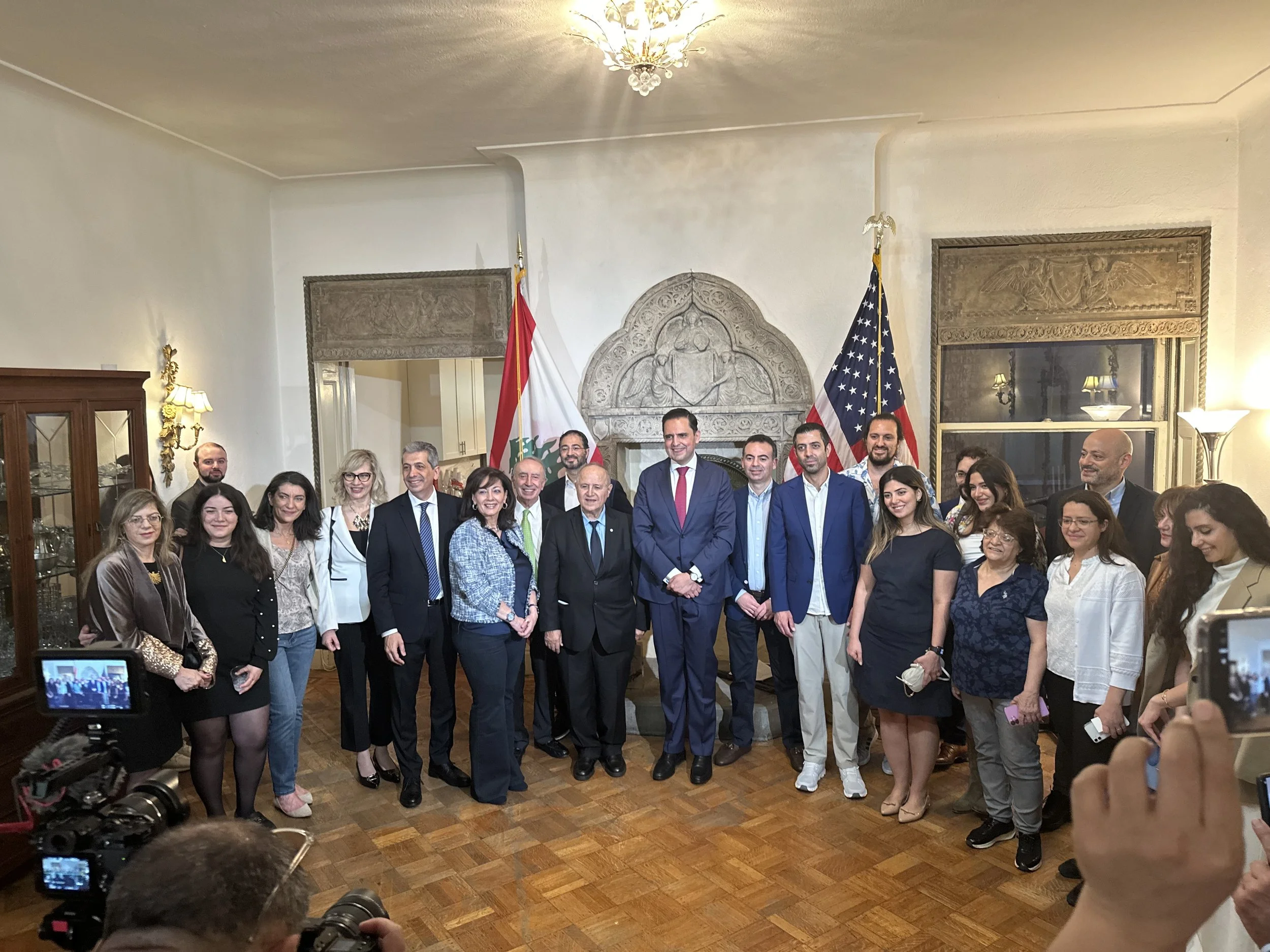South Africa Demonstration in Manhattan - United Nations Headquarter
On March 21, 2025, hundreds of demonstrators gathered outside the United Nations Headquarters on First Avenue in New York City to voice their support for South Africa and to call for an immediate halt to what they described as an invasion threatening the nation’s sovereignty. The rally, organized by a coalition of international human rights groups and members of the South African diaspora, coincided with Human Rights Day, a date of deep historical significance for South Africans. Protesters carried large banners reading “Stop the Invasion” and “Respect South Africa’s Sovereignty,” while others waved South African flags and sang freedom songs that once echoed during the anti-apartheid struggle. The atmosphere was a mixture of urgency and solidarity. Speakers took turns addressing the crowd through megaphones, urging the international community to act swiftly and decisively. Several activists emphasized the importance of diplomatic solutions and appealed directly to the United Nations to intervene through peaceful measures. They argued that the principles of territorial integrity, self-determination, and human rights must be upheld consistently across the globe. Faith leaders, student organizers, and community advocates stood side by side, reflecting a broad and diverse base of support. Police maintained a visible but calm presence as marchers lined First Avenue, chanting and holding a moment of silence for those affected by the conflict. Passing diplomats and visitors paused to observe the demonstration, some stopping to speak with organizers and learn more about the situation. By late afternoon, organizers vowed to continue raising awareness through petitions, meetings with diplomats, and future demonstrations. For those in attendance, the gathering was not only a protest but also a declaration of unity — a message that South Africa’s struggle should not go unnoticed by the world.
Maryann Jalaf- UM News.
Armenia and Azerbaijan came to the White House to sign peace and economic agreements brokered by President Trump after 35 years of conflict.
President Trump is the President of Peace. As President, he has brokered peace between Azerbaijan and Armenia, Cambodia and Thailand, Israel and Iran, Rwanda and the Democratic Republic of the Congo, India and Pakistan, Egypt and Ethiopia, Serbia and Kosovo, and with the Abraham Accords.
BY: Maryann Jalaf 8/8/2025
Crown Prince Mohammed bin Salman (MBS) has stated that he is committed to eliminating extremist ideologies that have harmed Saudi Arabia's image and global relations. He emphasized that Saudi Arabia was not like this before 1979 MBS has said he wants to bring Saudi Arabia back to its moderate and tolerant Islam, where the kingdom can coexist with other nations, respect different cultures, and promote peace and development. His vision includes reforms in society, economy, and religion, aiming to modernize the country while preserving its Islamic roots.
****************************************************************************************************************************
صرّح صاحب السمو الملكي ولي العهد الأمير محمد بن سلمان بأنه ملتزم بـالقضاء على الأيديولوجيات المتطرفة التي ألحقت الضرر بصورة المملكة العربية السعودية وعلاقاتها مع العالم. وقد شدّد على أن السعودية لم تكن كذلك قبل عام 1979. وقد أعرب سموه عن رغبته في إعادة المملكة إلى الإسلام الوسطي المعتدل والمتسامح، بحيث تكون قادرة على التعايش مع الدول الأخرى، واحترام مختلف الثقافات، وتعزيز السلام والتنمية. وتشمل رؤيته إصلاحات شاملة في المجتمع والاقتصاد والدين، تهدف إلى تحديث الدولة مع الحفاظ على جذورها الإسلامية الأصيلة.
Written by: Maryann Jalaf -8/7/2025
مصر تدعو العالم للتحرك:
المساعدات عالقة في رفح والحرب تحاصر غزة
مصر تدعو العالم للتحرك: المساعدات عالقة في رفح والحرب تحاصر غزة
تواجه جهود إيصال المساعدات الإنسانية إلى قطاع غزة تحديات متصاعدة مع استمرار الحرب وتصاعد وتيرة العمليات العسكرية، حيث يبقى معبر رفح، المنفذ البري الحيوي، هدفًا متكررًا للهجمات، ما أدى إلى تدميره أربع مرات منذ اندلاع الأزمة الأخيرة.
مصر، التي لعبت دورًا رئيسيًا في دعم الشعب الفلسطيني على مدار العقود، تبذل جهودًا حثيثة لضمان وصول المساعدات إلى أهالي القطاع. وأكدت مصادر رسمية أن المئات من الشاحنات المحملة بالغذاء والدواء ومستلزمات الإغاثة لا تزال عالقة في الجانب المصري من المعبر، في انتظار السماح بدخولها بأمان.
وفي ظل تصاعد المأساة الإنسانية في غزة، دعا الرئيس عبد الفتاح السيسي الإعلام المصري والدولي إلى تسليط الضوء على هذه الأزمة الإنسانية التي تفاقمت بشكل خطير. وأكد السيسي أن مصر تبذل كل ما في وسعها من أجل إيصال الدعم إلى الفلسطينيين، مطالبًا بتحرك دولي عاجل لوقف إطلاق النار والسماح بمرور المساعدات بشكل آمن ودائم.
وقال الرئيس في تصريحات له إن "القضية الفلسطينية لم تكن يومًا غائبة عن الضمير المصري"، مشددًا على أن الحل ليس فقط في فتح المعابر، بل في إنهاء الحرب والعودة إلى مسار السلام. وأضاف أن الحل الجذري يكمن في تحقيق تسوية شاملة تضمن الحقوق المشروعة للشعب الفلسطيني، وعلى رأسها إقامة دولته المستقلة.
الوضع الإنساني في غزة بات لا يُحتمل، وفقًا لتقارير المنظمات الدولية، حيث يعاني السكان من نقص حاد في المياه النظيفة، وانهيار شبه كامل للمنظومة الصحية، وانعدام الأمن الغذائي. ومع كل يوم يمر دون دخول المساعدات، تتفاقم الكارثة ويزداد العبء على المدنيين.
المجتمع الدولي، بحسب متابعين، مطالب الآن أكثر من أي وقت مضى بالتدخل الجاد للضغط على الأطراف لوقف الحرب والسماح للمساعدات بالوصول، وتوفير ممرات إنسانية آمنة ومستدامة. في هذا الإطار، تظل مصر صوتًا قويًا ينادي بالسلام العادل ويدفع باتجاه تحركات سياسية فاعلة، تضع حدًا لمعاناة لا يجب أن تستمر.
Egypt Urges Global Action:
Aid Trucks Stuck at Rafah as War Chokes Gaza
Egypt Urges Global Action: Aid Trucks Stuck at Rafah as War Chokes Gaza
Efforts to deliver humanitarian aid to the Gaza Strip continue to face severe obstacles amid the ongoing war, with the Rafah border crossing—Gaza’s primary lifeline—being targeted and damaged multiple times. Since the start of the recent conflict, the crossing has been destroyed four times, severely hindering the entry of vital supplies.
Egypt, a long-standing supporter of the Palestinian people, has been working relentlessly to provide relief. Official sources report that hundreds of aid trucks loaded with food, medicine, and emergency supplies remain stranded on the Egyptian side of the border, awaiting safe passage into the besieged enclave.
In light of the deepening humanitarian crisis, Egyptian President Abdel Fattah El-Sisi has called on both local and international media to shed light on what he described as a "critical and urgent humanitarian issue." He reaffirmed Egypt’s unwavering commitment to supporting the people of Gaza and urged the global community to take immediate steps to halt the war and ensure the safe delivery of aid.
"The Palestinian cause has never been absent from the Egyptian conscience," President El-Sisi stated, emphasizing that the solution goes beyond reopening border crossings. "The real answer lies in ending the war and resuming a genuine peace process." He stressed the importance of a long-term political resolution that guarantees the legitimate rights of the Palestinian people, including the establishment of an independent state.
The humanitarian situation in Gaza has reached catastrophic levels, according to reports from international organizations. Civilians are suffering from extreme shortages of clean water, a near-total collapse of healthcare infrastructure, and widespread food insecurity. Each day without aid intensifies the crisis and adds to the civilian toll.
Observers argue that the international community must now take decisive action—more than just statements of concern—to pressure all sides into a ceasefire, facilitate the entry of humanitarian aid, and establish safe, continuous humanitarian corridors.
In this context, Egypt remains a leading voice for peace and stability, continuing its diplomatic efforts to push for immediate relief and a permanent end to the conflict. As trucks remain parked just kilometers away from Gaza’s starving population, the urgency for a solution has never been greater.
Written By: Maryann Jalaf Aug 5th 2025 at 12:22 p.m
Syria’s foreign minister took part in a United Nations Security Council session on Friday April 25, 2025 , shortly after hoisting the country’s new flag at the UN headquarters. This marked the first official visit to the U.S. by a senior Syrian government figure since President Bashar Assad was ousted in a swift rebel offensive last December.
Prime Minister Asaad Al Shibani and his delegation met with members of the Syrian community at the Syrian Mission in New York, where they discussed key issues facing the country. The conversation focused on the current situation in Syria, including safety, security, and the well-being of citizens. Community members asked questions about the status of Syrians living in the U.S. and how they can contribute to supporting people back home.
The meeting also addressed the major challenges facing the new government, particularly in light of ongoing instability. Prime Minister Shibani spoke about the steps being taken to maintain public security, stabilize the economy, and ensure that state employees receive their monthly salaries. He emphasized the government’s commitment to keeping public facilities and essential services running despite the difficult conditions on the ground. The dialogue reflected a shared sense of responsibility and a desire to strengthen ties between Syrians abroad and those still in the country.
—————————————————————————————————————————————————————————————————————————————————————————————————————————————————————————
في يوم الجمعة 25 أبريل 2025، شارك وزير الخارجية السوري في جلسة لمجلس الأمن التابع للأمم المتحدة، وذلك بعد رفع علم البلاد الجديد في مقر الأمم المتحدة في نيويورك. مثل هذا الحدث أول زيارة علنية إلى الولايات المتحدة لمسؤول سوري رفيع المستوى منذ سقوط الرئيس السابق بشار الأسد خلال الهجوم السريع الذي شنته قوات المعارضة في ديسمبر الماضي.
وفي وقت لاحق من نفس اليوم، عقد رئيس الوزراء أسعد الشيباني وفريقه اجتماعًا مع أعضاء الجالية السورية في مقر البعثة السورية في نيويورك. ركز اللقاء على القضايا الوطنية الرئيسية، بما في ذلك الوضع الأمني الحالي، وسلامة الجمهور، ورفاهية المواطنين السوريين. وطرح الحضور أسئلة حول أوضاع السوريين المقيمين في الولايات المتحدة واستعرضوا سبل دعم الجالية لجهود إعادة البناء في الوطن.
كما استعرض رئيس الوزراء الشيباني التحديات الكبيرة التي تواجه الحكومة الجديدة، خاصة في ظل استمرار الاضطرابات. وناقش الإجراءات التي تُتخذ للحفاظ على الأمن الوطني، وإحياء الاقتصاد، وضمان صرف رواتب موظفي القطاع العام في الوقت المناسب. كما أكد التزام الحكومة بالحفاظ على استمرار الخدمات والمؤسسات الأساسية رغم الظروف الصعبة. وعكس الاجتماع شعورًا قويًا بالوحدة وهدفًا مشتركًا لإعادة بناء سوريا من خلال التعاون بين المواطنين في الداخل والخارج.
BY: Maryann Jalaf. April 25, 2025 3:00 p.m
BeMa Beirut Museum of Art
The House of Lebanon in New York City - Celebrating the BeMA Beirut Museum of Art on 6/5/2025. N.Y.C. Intro: BeMA, the Beirut Museum of Art, stands as a powerful symbol of cultural revival and national identity in Lebanon. As the first museum in the country specifically established to recognize, preserve, and promote Lebanese identity through modern and contemporary art, BeMA carries a mission that goes far beyond merely housing a collection of artworks. It is a cultural initiative with deep social, historical, and national significance, born out of a desire to reconnect a fragmented society with its diverse artistic heritage. The museum was founded by the Association for the Promotion and Exhibition of the Arts in Lebanon (APEAL), a non-governmental organization committed to cultural development. From its inception, BeMA has positioned itself not just as a space for exhibition, but as a vital platform for research, dialogue, education, and artistic production. In a country with a complex political history and a rich but often underappreciated cultural legacy, BeMA’s mission is to fill a long-standing void in Lebanon’s institutional art landscape by providing a permanent home for the nation’s art collection and a public space where Lebanese creativity can thrive. At its core, BeMA represents a reimagining of the museum as an open, accessible space for the people—a place not reserved for elite audiences, but designed to be part of the everyday life of Beirut’s residents and the broader Lebanese community. Its architecture reflects this vision: the museum’s landmark building, designed by the acclaimed architectural firm WORKac, incorporates a vertical promenade with a series of open-air balconies that echo Beirut’s traditional verandas and Mediterranean-style openness. This design not only invites the public in but also integrates the museum into the urban fabric, encouraging spontaneous encounters with art and culture. The museum will house over 2,000 works from the national collection—many of which will be exhibited for the first time—representing a wide spectrum of Lebanese artists from the 19th century to the present day. This unprecedented access to Lebanon’s cultural heritage allows BeMA to serve as a living archive, offering insight into the country’s artistic evolution and its role in shaping Lebanese identity. Fostering education and cross-generational engagement. It hosts workshops, artist residencies, talks, and community outreach programs aimed at empowering young artists, students, and marginalized groups. These initiatives are essential in a country where access to cultural education is often limited and where creative expression can serve as a powerful tool for healing and unity. BeMA's commitment to inclusivity and education underscores its belief that art is not a luxury, but a necessity for social cohesion and civic engagement. It invites people of all backgrounds to participate in the ongoing conversation about what it means to be Lebanese—culturally, historically, and emotionally. In doing so, the museum contributes not only to the preservation of national heritage but also to the shaping of Lebanon’s future through artistic exploration and dialogue. The significance of BeMA also lies in its timing and resilience. It was conceptualized in the aftermath of major national challenges, including political instability, economic collapse, and the devastating Beirut port explosion in 2020. Rather than retreating in the face of these hardships, the museum’s founders pressed forward, laying the cornerstone for the physical building in 2022 with support from Lebanon’s Ministry of Culture and Prime Minister Najib Mikati. The decision to move ahead with the museum despite the country’s many crises was a statement in itself—a declaration that culture must not be sidelined, even during times of turmoil. In fact, it is precisely during such times that institutions like BeMA are most needed, as they offer spaces for reflection, resilience, and renewal. Through its continued commitment to building the museum and launching public programming even before its official opening (scheduled between 2026 and 2029), proves that art and culture are not only remnants of the past but also catalysts for progress and transformation. A museum—it is a beacon of hope, continuity, and national pride. It honors Lebanon’s artistic past while cultivating its cultural future, providing a platform for both established and emerging artists to express their visions of Lebanon’s identity. Through its thoughtful design, inclusive mission, and unwavering dedication, BeMA helps redefine the role of art in public life. It reminds us that cultural institutions can be powerful agents of change, capable of healing wounds, bridging divides, and inspiring generations. As Lebanon continues to navigate its complex path forward, stands as a testament to the enduring strength of its creative spirit and the unifying power of art.
BY: Maryann N.J- The House of Lebanon- New York. June 6, 2025
Italy has been engaged in a long and complex battle against organized crime, which remains a significant threat to its society, economy, and institutions. The country faces several powerful criminal organizations, including the Sicilian Cosa Nostra, the Calabrian ’Ndrangheta, the Neapolitan Camorra, and the Sacra Corona Unita in Puglia. Among these, the ’Ndrangheta is currently the most influential, with vast international networks, especially in drug trafficking and money laundering. To combat these groups, Italy has implemented strong anti-mafia laws. The most notable is Article 416-bis of the Penal Code, which makes mafia-type association a specific crime. Italy also uses asset seizure laws to confiscate and repurpose properties and businesses owned by mafia groups, often converting them into schools, farms, or community centers. A key element of Italy's approach is the protection of pentiti (informants), whose testimonies have led to major convictions. Specialized law enforcement units like the DIA (Anti-Mafia Investigation Directorate) and DDA (District Anti-Mafia Directorates) work across regions to investigate and prosecute mafia activity. Historic efforts like the Maxi Trial in the late 1980s demonstrated Italy’s commitment, though it came at great cost—judges Giovanni Falcone and Paolo Borsellino were assassinated in 1992. Civil society also plays a vital role. Organizations like Libera involve citizens, especially youth, in education and community projects to build a culture against mafia influence. Despite progress, challenges remain. Organized crime continues to infiltrate legitimate businesses and politics, particularly in southern Italy. Additionally, newer forms of crime—such as cybercrime and international money laundering—are expanding. Italy’s fight against organized crime is ongoing, requiring constant adaptation, public support, and international cooperation to dismantle criminal power structures and protect democratic institutions.
Written/Edited BY: Maryann Jalaf- Nov 13, 2024 -UNHQ

May 13–16, 2025, U.S. President Donald Trump embarked on a significant diplomatic tour of the Middle East, marking his first foreign trip since resuming office earlier this year. The visit commenced in Riyadh, Saudi Arabia, underscoring the enduring strategic partnership between the United States and the Kingdom. U.S. President Donald Trump made a highly anticipated visit to Saudi Arabia, marking his first official trip abroad since returning to political prominence. The Saudi government welcomed him with exceptional grandeur, signaling a strong message of alliance and respect. Upon his arrival in Riyadh, Trump was greeted with an elaborate display of ceremony rarely extended to international figures. Royal Saudi Air Force jets escorted Air Force One as it approached King Khalid International Airport, where Crown Prince Mohammed bin Salman personally received him. A purple carpet—symbolic of royalty—was laid out as a traditional cavalry unit, bearing Saudi and American flags, lined the path. The pageantry set the tone for what would become one of the most visually impressive and diplomatically significant visits by any former U.S. president to the Kingdom. Throughout the visit, Trump was immersed in Saudi hospitality and tradition. At the Royal Terminal, he was offered Arabic coffee by guards dressed in ceremonial robes and gold-inlaid belts. He then joined the Crown Prince for a formal horseback entrance—an honor rich in Bedouin heritage. Later, Trump and bin Salman appeared at the U.S.–Saudi Investment Forum, joined by American tech and business leaders including Elon Musk and Sam Altman. In his speech, Trump praised Saudi Arabia’s modernization efforts and hailed Crown Prince Mohammed bin Salman as “an incredible man” and a vital ally. His remarks emphasized the mutual benefits of cooperation in defense, infrastructure, and energy, aligning with the broader purpose of the visit: to solidify a long-term strategic partnership grounded in commerce, stability, and shared geopolitical interests. The culmination of the visit came with a lavish state dinner at the historic Ad-Diriyah site, a UNESCO World Heritage landmark and symbol of Saudi national identity. There, amid traditional music, ornate settings, and Saudi dignitaries, the two nations signed a new Strategic Economic Partnership agreement worth hundreds of billions of dollars in trade and investment pledges. Trump even proposed raising the agreement’s value from $600 billion to $1 trillion, showcasing his signature business-forward diplomacy. In every respect, the Saudi welcome was more than ceremonial—it was strategic, symbolic, and carefully orchestrated to highlight the strength of U.S.–Saudi relations. From the military honors to the historical venues and cultural tributes, Trump’s 2025 visit will be remembered not only for its extravagant hospitality but also for the message it sent about renewed international alliances and the Kingdom’s ambition on the global stage.
في إطار الفعاليات المصاحبة للاستعراض الوطني الطوعي الثاني، وبمشاركة واسعة من الجهات الحكومية والخاصة، نظّمت سلطنة عُمان معرضًا وطنيًا تعريفيًا على هامش المنتدى السياسي الرفيع المستوى لعام 2024، الذي يُعقد في مقر الأمم المتحدة بنيويورك.
ويهدف هذا المعرض إلى تسليط الضوء على التقدّم الذي أحرزته السلطنة في تحقيق أهداف التنمية المستدامة 2030، من خلال عرض أبرز المبادرات والمشاريع الوطنية، والخطط والسياسات المتكاملة التي تنفذها مختلف القطاعات. كما يُبرز المعرض الجهود التشاركية بين الحكومة والقطاع الخاص والمجتمع المدني، ويؤكد على النهج القائم على الشمول والاستدامة في صياغة وتنفيذ الخطط التنموية.
وقد تضمّن المعرض مواد مرئية وتفاعلية، وعروضًا تقديمية، ومجسمات توضح التقدّم المحرز في محاور رئيسية مثل التعليم، والصحة، والطاقة المتجددة، والتمكين الاقتصادي، وحماية البيئة، إضافة إلى مبادرات مبتكرة في مجال التحول الرقمي وتعزيز الحوكمة.
وتأتي هذه المشاركة تأكيدًا على التزام سلطنة عُمان الراسخ بتنفيذ أجندة التنمية المستدامة، وتعزيز التعاون الدولي، وتبادل التجارب والخبرات مع الدول الأعضاء والمنظمات الدولية لتحقيق مستقبل أكثر استدامة وشمولًا.
تقرير: إنعام طحان -مقر الأمم المتحدة في نيو يورك 7/18/2024
As part of the events accompanying the Second Voluntary National Review, and with broad participation from both public and private entities, the Sultanate of Oman organized a national exhibition on the sidelines of the 2024 High-Level Political Forum held at the United Nations Headquarters in New York.
The exhibition aims to highlight the progress achieved by the Sultanate in implementing the 2030 Sustainable Development Goals (SDGs), through showcasing key national initiatives and projects, as well as integrated plans and policies implemented across various sectors. It also emphasizes the collaborative efforts between the government, private sector, and civil society, underscoring an inclusive and sustainable approach to development planning and execution.
The exhibition featured visual and interactive materials, presentations, and models that illustrate the progress made in key areas such as education, health, renewable energy, economic empowerment, and environmental protection. It also showcased innovative initiatives in digital transformation and governance enhancement.
This participation reaffirms the Sultanate of Oman's strong commitment to the implementation of the Sustainable Development Agenda, the promotion of international cooperation, and the exchange of experiences and best practices with UN member states and international organizations to achieve a more inclusive and sustainable future.
Report by: In’am Tahan / Edited by: Maryann Jalaf/ Videography: Alan Gabriel/ United Nations Headquarters, New York, 7/18/2024


